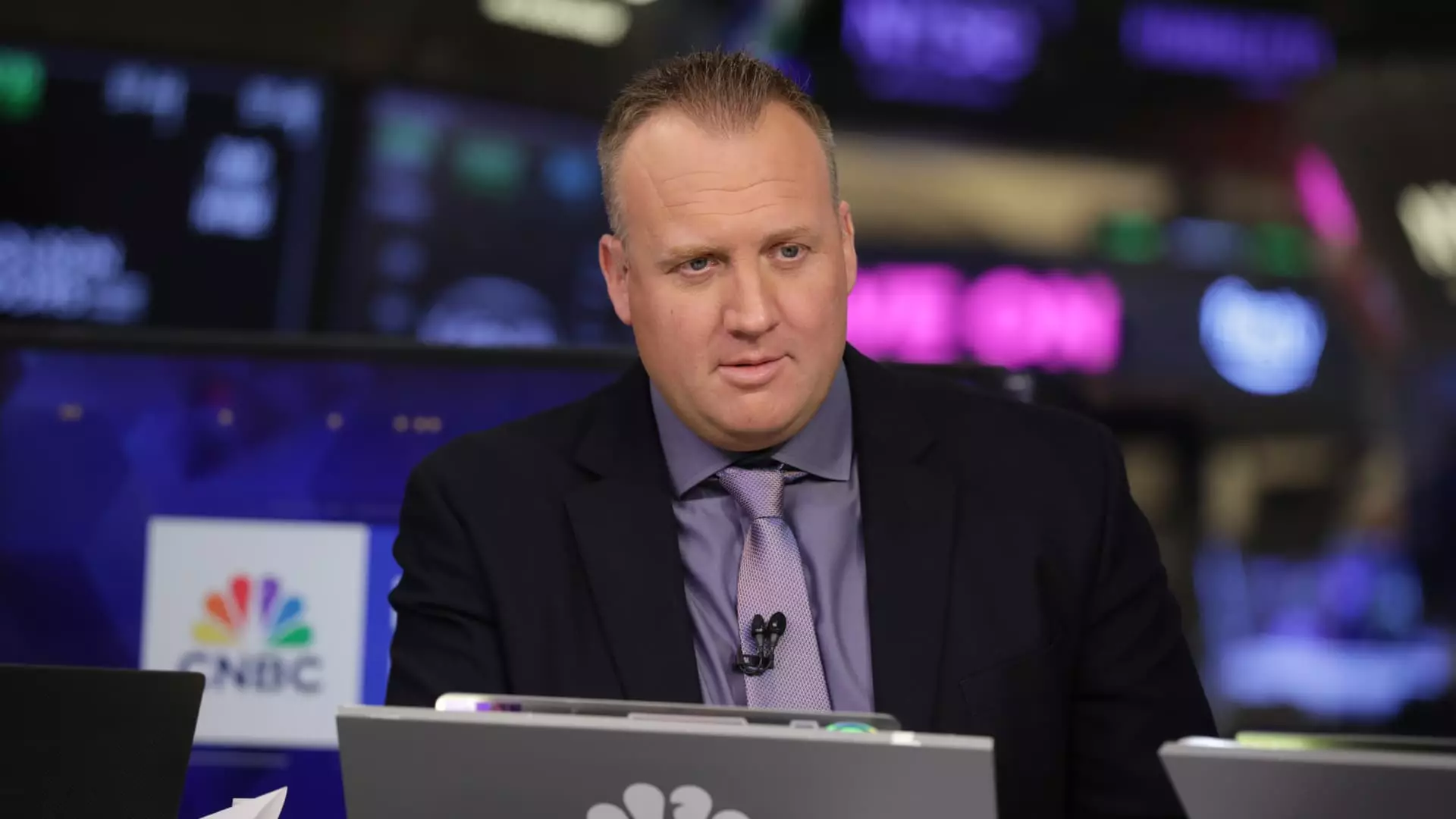In the ever-swirling maelstrom of social media and corporate titans, the recent altercation between Elon Musk and Donald Trump stands as a glaring example of how the volatility of personality can influence market movement. Musk, who has drawn a considerable amount of his popularity from his unfiltered online presence, took a stark jab at Trump during a Twitter skirmish that sent Tesla shares plummeting by over 14%. A shocking shift for a man who, just years prior, was considered an ally to the former president. This bizarre spectacle on the platform, now known as X, illuminates more than just a conflict of personalities; it raises questions about the kind of allegiance that can exist in a market environment heavily influenced by the whims of social media.
The Faithful Investor Base
Josh Brown, CEO of Ritholtz Wealth Management, has astutely observed that Tesla’s investors seem unfazed by the drama that would have rattled lesser companies. According to him, Tesla is transforming in the eyes of investors—from an electric car company to a tech-driven entity focused on innovations like robotaxis and artificial intelligence. There is a cult-like loyalty emanating from Tesla’s shareholders, which, while impressive, borders on reckless faith. The juxtaposition of market sentiment against the backdrop of actual performance raises eyebrows. While Tesla grapples with losing market share in key segments, investors are seemingly more interested in the distant promise of future technologies.
The Illusion of ‘Nothing Matters’ Stocks
Brown’s description of Tesla as a “nothing-matters stock” encapsulates the dissonance between traditional investment rationale and the evolving landscape of modern-day stock ownership. Trading at an astounding 120 times earnings, Tesla’s valuation appears to fly in the face of logic, yet investors appear willing to chuck rationale out the window in favor of speculative narratives fueled by hope and innovation. This delusional optimism runs counter to old-school principles; it’s as if investors are actively choosing to ignore both risks and fundamental metrics. Such a mindset not only poses questions about Tesla’s valuation but also heralds a precarious pathway for the broader market, one which operates on dreams rather than solid financial footing.
The Short-Term Turmoil and Long-Term Reassurance
What complicates this landscape further is the psychological impact of market dips. The recent sell-off, while significant, was not substantial enough to deter the die-hard investors; rather, it presented an opportunity for some to buy the dip. This willingness to step in during turbulent times reveals a concerning trend: the normalization of volatility as a mere inconvenience rather than a cautionary tale. Tesla’s share deterioration of more than 25% is viewed as a minor hiccup by many, a jubilant moment where faith in the brand and its visionary leader triumphs over analytics. This highlights an unsettling truth of selective perception where bad news is reshaped into yet another investment opportunity.
The Next Big Idea: Robotaxis vs. Reality
The blind faith held by Tesla’s shareholders brings to light the allure of drawing narratives that revolve around transformational concepts, such as robotaxis. Brown points to the notion that the investors’ foresight into the autonomous future has shifted the frame of reference regarding vehicle sales. Yet, this agile shift in viewpoint raises significant skepticism. The question looms: could relying solely on the promise of future advancements erode the relevance of current product performance? The risk of building castles in the air while neglecting the pragmatics of market share could be Tesla’s Achilles heel.
Ultimately, the crux of the matter lies in the dichotomy between faith and reason. While the drama of the Musk-Trump showdown may be a spectacle that captures attention, the real story is far grimmer: the market risks spiraling inward, fueled by blind loyalty rather than sound investment principles. The dazzling promise of futuristic technologies shouldn’t allow logic to fade into the background; investors need to tread carefully in a terrain where reality and optimism often clash in spectacular fashion.

